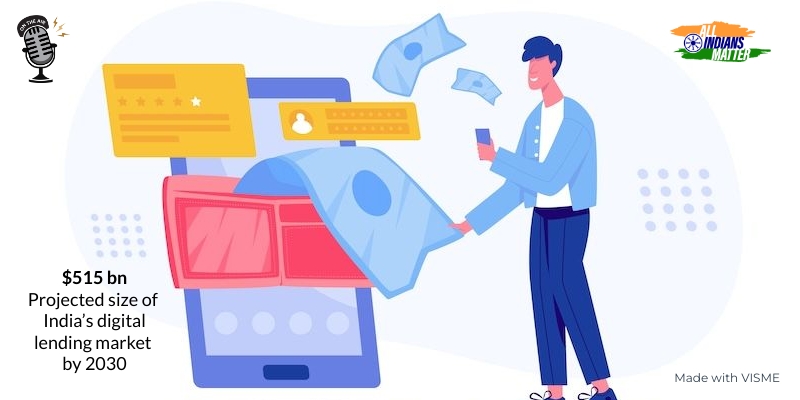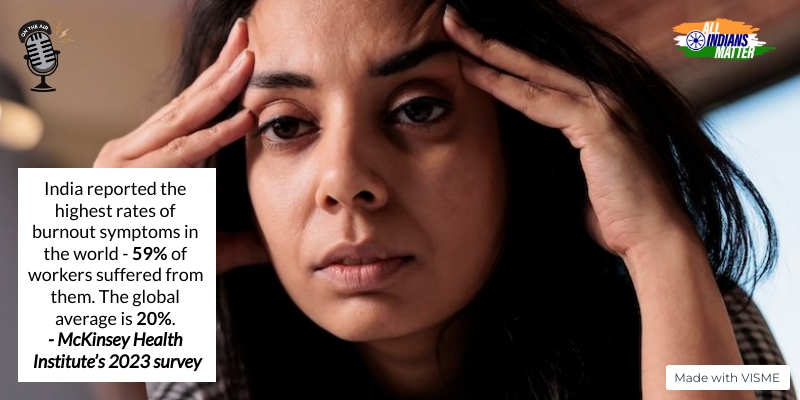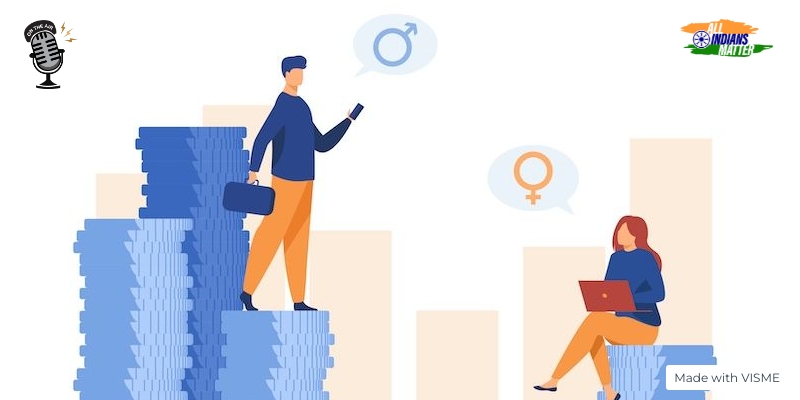Ashraf Engineer
July 17, 2021
 Hello and welcome to All Indians Matter. I am Ashraf Engineer
Hello and welcome to All Indians Matter. I am Ashraf Engineer
The maxim that a pandemic affects everyone, but doesn’t affect everyone equally couldn’t be more true. And it couldn’t get starker than it did in India. While the poor got poorer during the pandemic, the billionaires got 35% richer, according to a study by non-profit rights group Oxfam. Get this: the fortunes of India’s 100 billionaires swelled by almost Rs 13 lakh crore since March 2020, enough to give the 138 million poorest Indians Rs 94,045 each. Meanwhile, an analysis by the Pew Research Center showed that India’s middle class shrank by 32 million people last year due to the economic turmoil. The number of poor – those with incomes of less than $2 a day – is estimated to have increased by 75 million, senior Pew researcher Rakesh Kochhar wrote. This, he said, accounted for nearly 60% of the global increase in poverty and it didn’t even include the virus’ second wave.
SIGNATURE TUNE
Mukesh Ambani, India’s richest man, who also leads the Asian wealth rankings, was worth more than $80 billion at the time of making this podcast – about $15 billion more than a year earlier, according to the Bloomberg Billionaires Index.
Oxfam said others like Shiv Nadar, Cyrus Poonawalla, Uday Kotak, Azim Premji, Sunil Mittal, Radhakrishan Damani, Kumar Manglam Birla and Laxmi Mittal also witnessed a massive rise in wealth during the pandemic. On the other hand, 1,70,000 people lost their jobs every hour in April 2020, said the Oxfam study.
Ambani, who leads Reliance Industries, was making a staggering Rs 90 crore per hour at one stage during the lockdown when 24% of Indians were earning less than Rs 3,000 per month. This period, Oxfam said, was when India witnessed its greatest rise in inequality. It estimated that an unskilled worker would take 10,000 years to make what Ambani made in an hour during the pandemic and three years to make what he made in a second.
As the lockdown took effect, the share of wealth held by the top 1% rose 7% to 40.5% by the end of 2020, according to Credit Suisse.
Meanwhile, Adani Group chief Gautam Adani’s wealth ballooned from just under $13 billion to $55 billion. Adani is the fourth richest man in Asia now and his worth – as well as Ambani’s – is more than the GDP of some countries.
This increase in wealth is symbolic of the rising wealth gap across the world, and India has come off the worst.
Ambani spent much of the pandemic as Asia’s wealthiest person and is now worth more than Mexican tycoon Carlos Slim and Dell founder Michael Dell. Reliance raised many billions from the likes of Google and Facebook, who were enamoured by his vision to dominate India’s energy and consumer landscapes.
Adani’s conglomerate is in industries as varied as ports to coal. Shares of its companies too rose significantly on the stock exchanges. However, prices fell somewhat after media reports that foreign funds holding stakes worth billions in Adani companies were frozen by the National Securities Depository. The estimated loss to Adani was $20 billion but he remained among Asia’s richest men.
Saurabh Mukherjea, founder of Marcellus Investment Managers, told CNN Business: “The country has now reached a stage where the top 15 business houses account for 90% of the profits.”
Alongside, as India slipped into a recession last year, many households lost their incomes and cut back on food intake, sold possessions and went into severe debt.
As India braces for a potential third wave of COVID-19, the wealth imbalance is an indicator of the skew in our economic system and policies. How can one of the worst recessions faced by the country result in one of the greatest wealth increases for the rich and one of the greatest wealth erosions for the poor? The pandemic has exposed the massive inequalities in our society – economic, social, gender… you name it.
So, to return to the maxim at the beginning of this episode, the pandemic has not affected everyone equally. It has not been an equaliser, but the very opposite.
Thank you all for listening. Please visit allindiansmatter.in for more columns and audio podcasts. You can follow me on Twitter at @AshrafEngineer and @AllIndiansCount. Search for the All Indians Matter page on Facebook. On Instagram, the handle is @AllIndiansMatter. Email me at editor@www.allindiansmatter.in. Catch you again soon.






